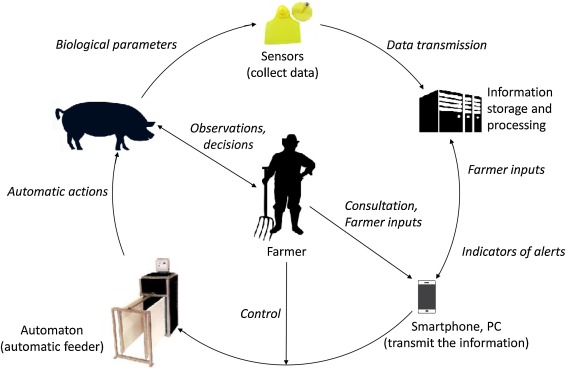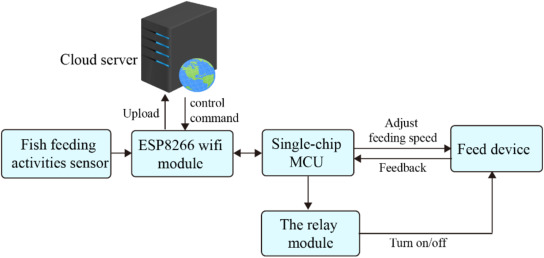In recent years, precision feeding technologies have revolutionized animal husbandry, offering a smarter way to manage livestock nutrition and improve animal health. These cutting-edge systems leverage data-driven insights, advanced monitoring tools, and tailored feeding programs to optimize the health and productivity of farm animals. In this article, we will explore how precision feeding contributes to animal health improvement and how it is reshaping the future of livestock farming.
Precision feeding refers to the use of technology and data analysis to provide livestock with tailored, optimized diets based on their individual nutritional needs. By monitoring the animal’s health status, activity levels, and growth, precision feeding systems can automatically adjust the animal’s feed intake to meet its specific requirements. The result is improved feed efficiency, healthier animals, and a more sustainable farming operation.

Precision feeding technology
Precision feeding technologies significantly enhance animal health improvement by ensuring that livestock receive the right nutrients at the right time. Here’s how these systems work to benefit animal health:
Customized Animal Diets:Precision feeding allows farmers to create customized animal diets based on factors like age, weight, breed, and even activity level. This ensures animals receive the correct amounts of vitamins, minerals, and nutrients, which leads to improved animal performance and better overall health.
Optimizing Feed Intake:By monitoring each animal’s nutritional needs, precision feeding systems optimize feed intake, ensuring animals consume the appropriate amounts of food based on their needs. This helps reduce the risk of overfeeding or underfeeding, both of which can negatively affect animal welfare.
Reducing Health Issues:Malnutrition can lead to a host of health problems in livestock, from immune system deficiencies to poor growth rates. With precision feeding, these issues are minimized by maintaining a consistent and balanced diet, thus reducing the likelihood of animal diseases and health complications.
Enhancing Feed Efficiency:By providing the right amount of feed at the right time, precision feeding increases feed efficiency. This means that animals are able to convert feed into growth or milk more effectively, improving both animal metabolism and overall health. This contributes to health diagnostics for animals as well, as farmers can track health metrics like weight gain and feed conversion ratios.
Precision feeding also plays a vital role in improving livestock nutrition. By utilizing health monitoring systems and smart feeding solutions, these technologies help farmers deliver the right type of feed based on an animal's specific nutritional requirements. Some key benefits include:
Micro-nutrients in Animal Feed: Precision feeding ensures that animals receive the optimal amount of micro-nutrients, which are essential for maintaining healthy bodily functions and preventing deficiencies.
Feed Formulation: Using feed additives and carefully crafted feed formulations, farmers can target specific health concerns, such as bone strength, reproductive health, and immune system support.
Sustainable Animal Farming: These technologies reduce feed waste, which helps create more sustainable animal farming practices. Precision feeding is a key component in the drive towards more eco-friendly agriculture.

The role of digital feeding technology in modern animal farming is transformative. By using automated feeding systems and sensors, farmers can monitor the health of their livestock in real time. The integration of data-driven animal nutrition tools enables precise adjustments to an animal’s diet based on immediate feedback, optimizing their health and performance. These technologies are making it easier for farmers to identify early signs of illness, malnutrition, or other health issues.
Health Diagnostics for Animals: The ability to collect and analyze data from digital feeding technology also provides valuable insights into an animal’s health status. Early identification of health problems allows for quick intervention, minimizing the impact on the animal’s well-being.
Animal Disease Prevention: Proper nutrition, facilitated by precision livestock farming systems, supports disease prevention by strengthening the immune system and reducing stress-related illnesses.
Feed additives are an essential part of precision feeding systems. These additives, which can include vitamins, minerals, and other essential nutrients, help ensure that animals receive the right amount of each nutrient. By precisely controlling the intake of these feed additives, farmers can enhance animal growth optimization and ensure that livestock stay healthy and productive.
Optimized Feed Intake: Through micro-feeding technologies, animals receive exactly what they need, preventing under or over-consumption of specific nutrients.
Reducing Feed Waste: Feed efficiency is greatly improved, as these systems minimize excess feed, reducing waste and ensuring that animals consume only what is necessary.
As technology continues to evolve, precision feeding technologies will only become more advanced. From using AI-driven systems to developing more sophisticated health monitoring systems, the future of animal health management looks promising. These technologies will enable farmers to provide better care for their animals, improving their health, welfare, and overall productivity.
In the near future, we can expect even more personalized feeding programs for animals. These programs will be based on continuous real-time data collection and analysis, which will help farmers make informed decisions to improve the health and well-being of their livestock.
| Key Aspect | Impact on Animal Health | Technology Involved |
|---|---|---|
| Customized Animal Diets | Ensures animals receive the right nutrients | Precision feeding, automated feeding systems |
| Feed Efficiency | Improves feed conversion and reduces waste | Data-driven animal nutrition, micro-feeding technologies |
| Health Monitoring Systems | Detects early signs of illness and malnutrition | Health diagnostics for animals, digital feeding technology |
| Sustainable Farming | Reduces environmental impact and feed waste | Smart feeding solutions, feed formulation |
| Feed Additives | Enhances animal growth and immunity | Feed additives, precision livestock farming |
| Animal Disease Prevention | Strengthens immune systems and reduces disease risks | Health monitoring, digital technology |
In conclusion, precision feeding technologies play a crucial role in enhancing animal health by providing customized diets, improving feed efficiency, and supporting overall livestock nutrition. With advancements in digital feeding technology and health diagnostics for animals, farmers now have the tools they need to monitor, manage, and improve animal health more effectively than ever before.
By adopting precision livestock farming practices, farmers can ensure their animals are healthier, their feed is used more efficiently, and their farming operations are more sustainable in the long run. The future of animal health is bright with precision feeding at the forefront of livestock management.
animal tags: Precision-feeding-technology
We created this article in conjunction with AI technology, then made sure it was fact-checked and edited by a Animals Top editor.